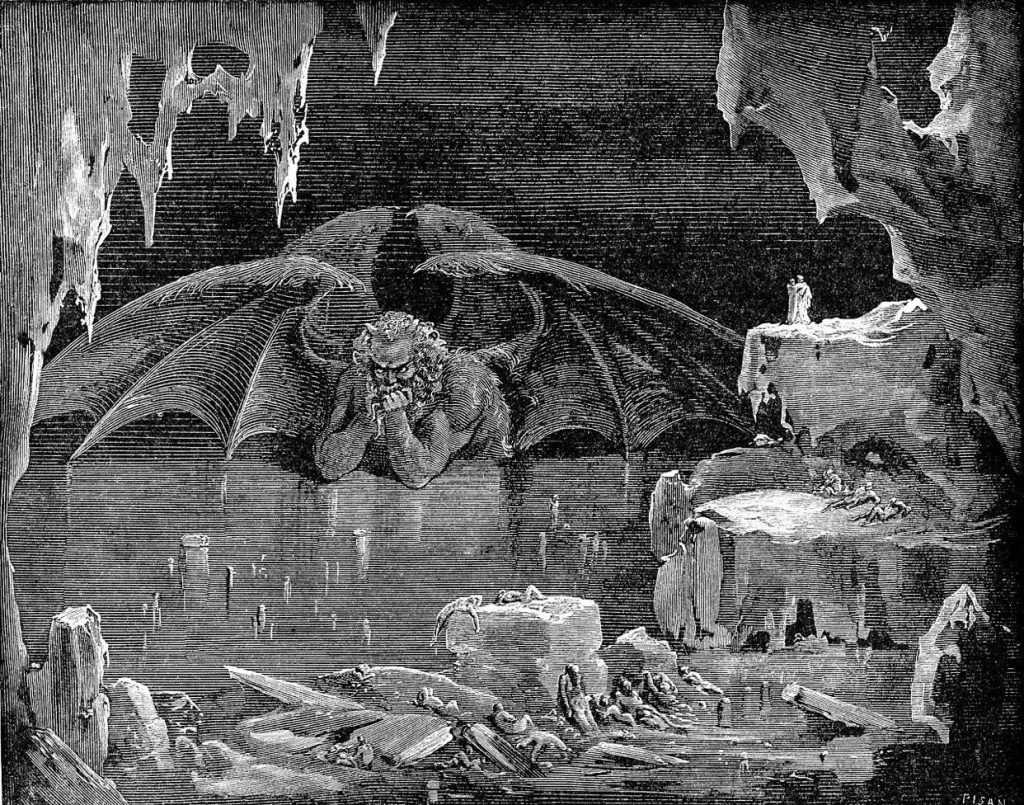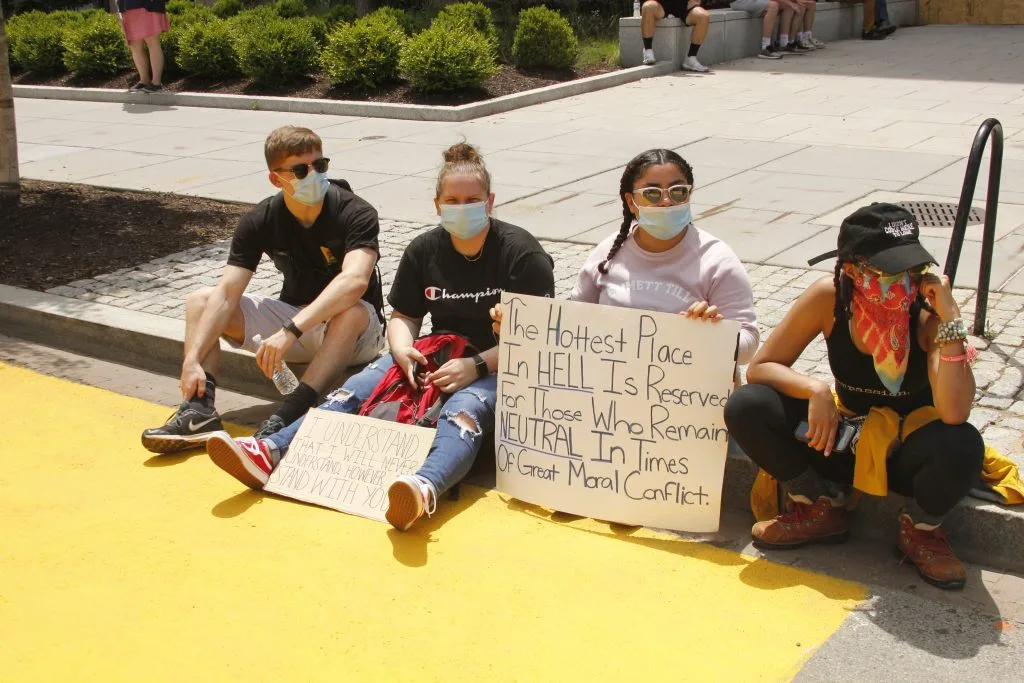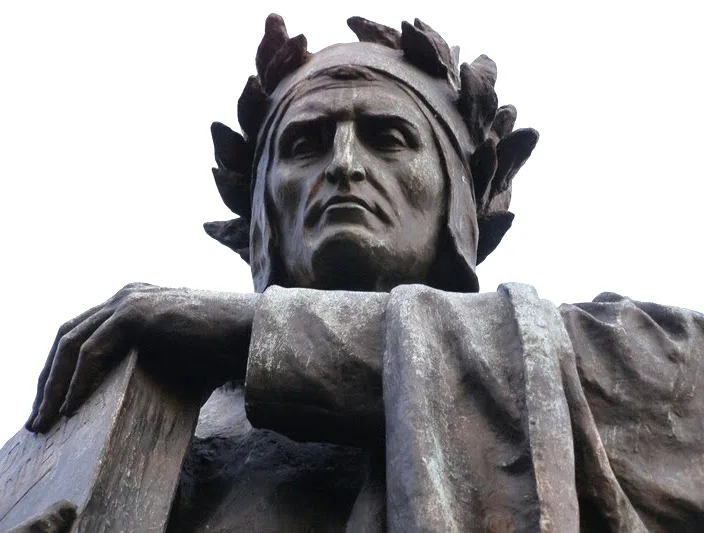“The hottest corners of hell are reserved for those who remained neutral during times of greatest moral crisis” - this quote has been attributed to Dante Alighieri since the beginning of the 20th century. We checked whether Dante really wrote this and where exactly he “identified” the souls of those maintaining neutrality in the Divine Comedy.
Dante's words about maintaining neutrality in times of moral crisis were also quoted by the US President John Kennedy, and director Andrey Konchalovsky, And Patriarch Kirill. This quote is getting especially active on social media. diverge in times of wars, political unrest and other “moral turning points” that force people to choose one side or another.
Dante Alighieri took active participation in the political life of Florence. In 1302, during political repressions, the poet-politician was first expelled from his hometown, and was later sentenced to be burned on a trumped-up corruption case. Dante never returned to Florence and his “Divine Comedy” wrote in exile. Many researchers of his work They saythat it was the experiences received in exile that served the poet as material for the “Comedy”.
The work clearly states where a person was sent for this or that sin and what punishment he deserved. As for the indecisive and insignificant people who lived their lives “knowing neither the glory nor the shame of mortal affairs,” according to Dante, they deserved neither heaven nor hell. They were “overthrown by heaven”, and the “abyss of hell” did not accept them, so Dante sentenced them to eternal residence in a symbolic interworld - the threshold of hell.
Such “non-aligned” ones fluently described at the beginning of the third song of “Hell”:
And the leader answered: “That is a sad fate Those pathetic souls who lived without knowing Neither the glory nor the shame of mortal affairs. And with them are a bad flock of angels, That, without rebelling, she was also not faithful To the Almighty, observing the middle. Heaven overthrew them, not tolerating the stain; And the abyss of Hell does not accept them, Otherwise, guilt would become proud.” And I: “Teacher, what torments them so much? And forces you to make such complaints?” And he: “A short answer is appropriate. And the hour of death is unattainable for them, And this life is so unbearable That everything else would be easier for them. Their memory on earth cannot be resurrected; Both justice and mercy departed from them. They are not worth words: take a look and you’ll pass by!” (Translation by M. Lozinsky)
This is all Dante says about neutrality and indecision. By the way, the “hottest” circle of hell, ninth, is the icy lake Cocytus, into which both Satan himself and those who committed the worst of sins are frozen: deceiving those who trusted them.

The pseudo-quote about “hot corners”, apparently, came in into world use from English-language sources. The quoted phrase “The hottest places in hell are reserved for those who in time of moral crisis preserve their neutrality” was not born immediately, but crystallized after several inaccurate retellings or deliberate alterations of the lines of the “Divine Comedy”. To understand how Dante's idea of neutrality underwent such a radical transformation, one must look to the early years of World War I, when neutrality became especially important to American society.
In 1915, American writer Henry Sedgwick published an essay about Italy's participation in the First World War, where he erroneously stated that by indecision Dante meant neutrality in the struggle between good and evil. At the same time, Sedgwick did not specify where exactly the souls of the indecisive live. In the same year, in the book “America and the World War,” former US President Theodore Roosevelt "determined" them to hell, but without specifying the specific circle of hell or its “corners”: “Dante assigned a special shameful place in hell to those base angels who did not dare to stand either on the side of good or on the side of evil.” In 1917, American religious speaker William Vines clarifiedthat, according to Dante, it is “in the very depths of hell” that the souls of those who remain neutral in the eternal struggle between good and evil are stuck. Thus, he used the figure of Dante to lend credibility to his sermon in support of US participation in the First World War.
World War II brought about a new surge in the popularity of the pseudo-quote when Dante's words were turned into a rhetorical tool for political calls to action. In 1944, preacher Henry Powell Spring finally recorded the phrase in the form in which it has survived to this day: “The hottest corners of hell are reserved for those who remain neutral in times of moral crisis.” The formulation about “the greatest moral turning points” apparently appeared as a result of translation into Russian.

The popularity of the phrase grew exponentially thanks to former US President John Kennedy, who tactically used this pseudo-quote at least 25 times during his political career. His brother Robert even notedthat these words were the politician’s favorite quote.
Thus, Dante’s original lines about neutrality have changed almost beyond recognition and migrated from a predominantly spiritual plane to a political one, in order to serve as a call to action throughout the 20th and 21st centuries in the context of political confrontations, wars and movements for rights and freedoms.
Distorted quote
Read on the topic:
- John F. Kennedy's favorite quotes: Dante's Inferno
- Guide to Dante's Inferno
- Dante's Inferno in The Divine Comedy
- "The Divine Comedy" through the eyes of artists
If you find a spelling or grammatical error, please let us know by highlighting the error text and clicking Ctrl+Enter.






